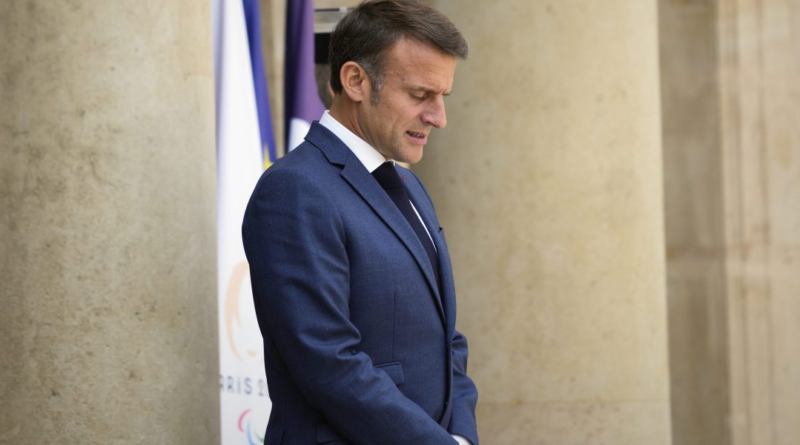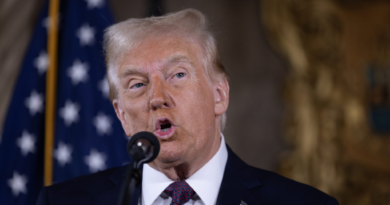France’s political chaos has already halted some economic reforms while markets weigh the worst-case scenario
The first round of France’s snap legislative elections has narrowed the possible outcomes to two — both of which presage prolonged uncertainty for investors.
With by far the biggest share of the vote, Marine Le Pen’s National Rally and allies are the only group in a position to now take an absolute majority, and therefore control the next government.
Alternatively, tactical voting and pacts between rival parties this week could be enough to prevent that from happening, leading to a hung parliament with the far right the biggest faction.
Each remaining scenario offers only a cloudy outlook in the medium term for government stability, policy, and implications for the wider region. The market reaction on Monday reflected that: French stocks and the euro rallied, while the bond spread between French and German yields was on track to close at its tightest level in two weeks — but gains pared as investor doubts returned.
“One thing is clear: the political balance of power is shifting from the center to the margins,” said Guenther Welter, a portfolio manager at Union Investment in Frankfurt. “Governing will become more difficult — both if the RN has an absolute majority and if there is no clear parliamentary majority.”
While the first election round featured a high threshold to win outright in each district, candidates in the run-off only need to get more support than their next rival, making tactical voting a key consideration. The range of estimates for National Rally seats from polling companies on Sunday had a low of 230 and a high of 305, spanning the 289 required for a majority.
More clarity may emerge this week as deal-making advances. Before then, here’s a look at what the two most likely outcomes could mean.
Precarious Paralysis
Under this scenario, Le Pen’s party leader Jordan Bardella keeps to his word and refuses to lead a minority government, even if the National Rally has by far the biggest group in parliament.
The immediate question is who President Emmanuel Macron could pick for premier. An apolitical technical figure is one option, but even if such a person were available, they would struggle to command authority in a National Assembly where avowed anti-elite forces would be in the ascendancy.
A more political figure as prime minister, perhaps a moderate from the center-left, would still be vulnerable to no-confidence votes and the splitting of an ad-hoc centrist alliance.
It would be hard for the president to pursue his pro-business reform agenda — and in an early sign of likely inertia, his outgoing government already blocked the implementation of an overhaul of jobless welfare late Sunday evening.
Fiscal policy was a worry for investors long before the election was called, with the 5.5% deficit well in excess of the European Union’s 3% limit. It could prove an enduring pressure point, since budget bills are always the most likely to trigger no confidence votes in the government. That could hamper spending cuts planned by Macron’s current team and opposed by the entire left.
“We are likely moving to a scenario of political stalemate and paralysis,” said Mohit Kumar, chief economist for Europe at Jefferies International. “A lack of reform process implies that we would likely be still above the 3% EU target even after five years.”
- Bonds: In a hung parliament, Jefferies sees the French yield spread over Germany heading back down toward 60 to 65 basis points, though a move back to pre-elections levels — between 40 and 50 basis points — is unlikely given existing fiscal challenges
- Equities: With bond spreads narrowing, stocks that sold off the most in the past three weeks would likely see a relief rally. Banks could see the biggest moves as they are most sensitive to bond yields. Toll-road operators would also see some relief, and internationally-exposed stocks that were sold off indiscriminately might also benefit.
Bitter ‘Cohabitation’
If the National Rally and allies win big enough to form a government, France faces a so-called “cohabitation” where the president runs defense and foreign policy, and domestic and economic affairs are controlled by the far right. Such a two-party arrangement has happened before, but not for more than 20 years and never between such ideologically opposed political adversaries.
Members of Le Pen’s party have called for Macron to resign in this eventuality, even if he has indicated he would serve a full second term to 2027. The president can dissolve parliament again, but not for a year.
While a majority would make the government more stable, the policy outlook is less predictable.
Bardella has pared down promises for lavish spending that Le Pen campaigned for in 2022 to try to reassure more conservative voters. But the National Rally is still obliged to deliver a core pledge to cut sales taxes on fuel and energy at a cost of €12 billion ($12.9 billion) over a full year, according to its own calculations. Financing that will be difficult.
Budget talks would become a key focus for markets. The National Rally has pledged to stick to the same fiscal trajectory as Macron’s government, but could struggle to deliver the necessary spending cuts or tax increases without betraying promises to voters.
France is already facing an EU reprimand for its big deficits, and relations with Brussels will be tricky given Le Pen’s prior stance against the bloc. She previously campaigned to leave the euro.
“The likelihood of having a majority government that openly rejects EDP/EU fiscal rules — that was my biggest risk scenario,” said Reinout De Bock, head of European rates strategy at UBS Group AG.
Such a risk seems to have faded, but an absolute majority for the National Rally will leave investors alert to a potential standoff with the president, making this the scenario that markets fear the most. The extent of any selloff would rest on the stance it takes once in power.
- Bonds: UBS says the yield spread could widen to as much as 130 basis points in a worst-case scenario where the National Rally clashes with the EU on fiscal rules
- Equities: This would likely extend the uncertainty surrounding French and European equities, at least temporarily, as investors would want to move to the sidelines to see what policies the government would pursue. French stocks could retest last week’s lows, and the market could underperform. Alternatively, a narrow fiscal margin could force the government to act responsibly; previous experiences of far-right governments, such as in Italy, have proven to be more market-friendly than anticipated.




